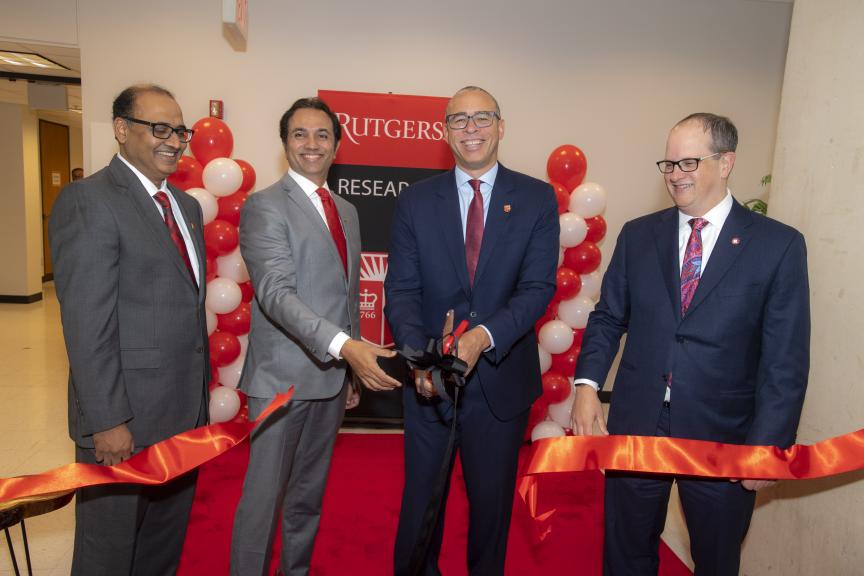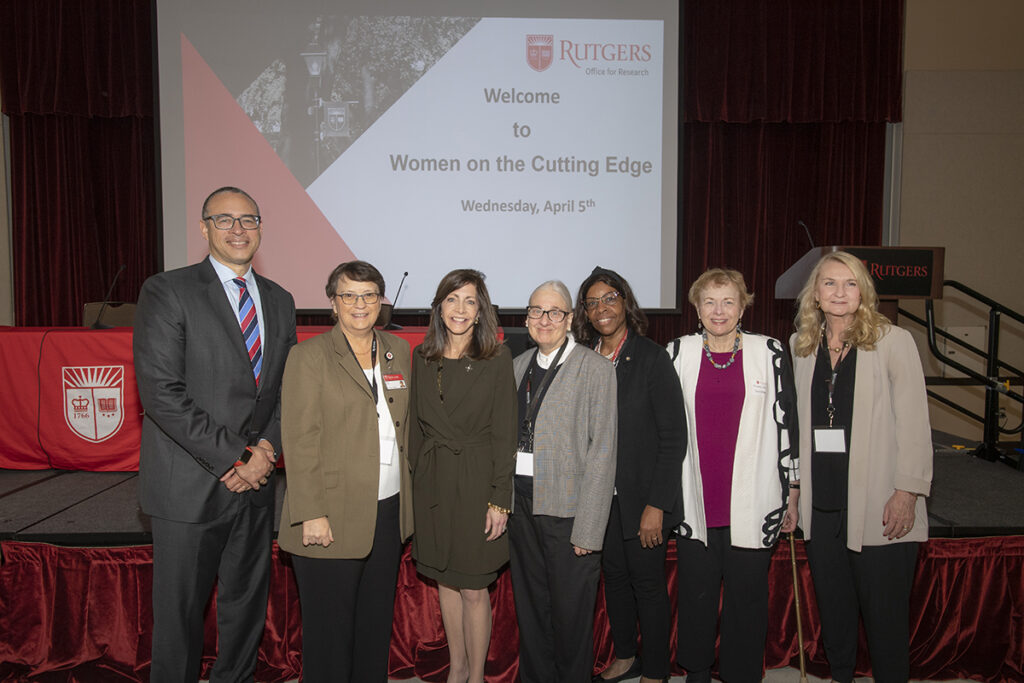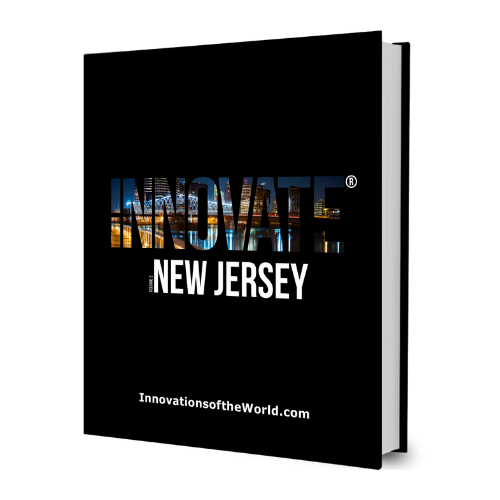Complex societal challenges require innovative solutions that transform and improve lives around the world. As a top 20 public research university with more than 300 research centers and institutions, Rutgers, The State University of New Jersey, offers a wide variety of programs that drive and support diverse and inclusive research, scholarship, and creative endeavors. Rutgers is a top national research university and New Jersey’s preeminent public institution of higher education, an inclusive engine that brings diverse groups together to drive innovation.
As the fourth-largest non-governmental employer in the state, supporting over 58,000 jobs, Rutgers represents the collective knowledge of a diverse workforce that is critical to providing solutions to modern challenges. In fact, Rutgers ranks first in New Jersey and 64th in the nation on Forbes’ list of the 500 best large employers in America. And as a premier research institution, Rutgers takes its role seriously. One of its three mission components is to conduct innovative research that contributes to the medical, environmental, social, and cultural well-being of the state, as well as aiding the economy and the state’s businesses and industries.

With over 67,000 undergraduate and graduate students representing 120+ countries, all 50 states, and all 21 New Jersey counties, 8,000 full- and part-time diverse faculty, 14,000 full- and part-time staff, and 1,500 international scholars representing nearly 100 countries, there is no shortage of ideas and innovations from within Rutgers’ four Chancellor-led units (Rutgers Health, Rutgers-Camden, Rutgers Newark, and Rutgers-New Brunswick). Rutgers researchers are tackling some of the world’s biggest problems, creating innovative and potentially life-changing solutions, all with the goal of improving the lives of those within our communities and beyond.
In 2023 alone, 4,225 research awards went to 1,569 Rutgers researchers, totaling almost $1 billion in research grants and sponsored programs. This funding supported key breakthroughs in areas such as climate change, cancer treatment, food shortages, and more.
Innovation starts with an idea. Rutgers strives to advance the innovations developed within its halls, labs, and fields, from their conception all the way to their transformation into products, services, and partnerships for the public good, generating value for the university and the state. The Office for Research (OfR) is at the forefront of that endeavor, supporting researchers in all areas, including funding, administration of grant awards, collaborations, patenting and licensing, and even the commercialization and entrepreneurship of Rutgers innovations.
Thanks to the technologies licensed by the OfR, Rutgers received just over $12.7 million in total licensing revenue in FY 2023. The office helped launch five companies that were founded based on technology developed at Rutgers, bringing the current total to 102 active Rutgers startups. In total, OfR received 160 invention disclosures, applied for and received 121 patents worldwide, signed 92 licenses and options, and executed nine exclusive licenses. The OfR departments behind these efforts, Technology Transfer and New Ventures, are made up of scientists and intellectual property (IP) experts with industry experience, working diligently with Rutgers researchers to help guide their research from proof of concept through patenting, licensing, and commercialization.
Recent examples of Rutgers innovations that are making a positive impact include the development of disease- and climate change resistant commercial basil, a high-profit crop that many small family farmers rely upon. The creation of this novel strain of basil by Rutgers School of Environmental and Biological Sciences researchers is the focus of Fields of Devotion, a science-in-action film, that won the Best Climate Film award from the New York Science and Nature Film Festival. Another example is innovative base editing technology developed by Rutgers Robert Wood Johnson Medical School (RWJMS) researchers, which enables precision genetic engineering for gene therapy, cell therapy, and agricultural improvement, and has been sublicensed to a global biopharmaceutical company. The invention, marketed as Pinpoint™ technology by Revvity, Inc. subsidiary Horizon Discovery, has been sublicensed to AstraZeneca to support its creation of cell therapies for the treatment of cancer and immune-mediated diseases.
OfR hosts conferences, workshops, and symposia throughout the year, bringing together researchers from different fields with industry and government representatives, to provide faculty the opportunity to network with potential collaborators, share best practices, and learn more about the exciting research and innovation being conducted at Rutgers. Moreover, the Office for Research submits nominations of Rutgers researchers for local and national awards. Through the Technology Transfer unit, the office selects researchers to nominate for honors, including but not limited to the Research and Development Council of New Jersey (RDNJ) Edison Patent Awards, AUTM Better World Project, Bell Labs Prize, National Academy of Inventors (NAI) Fellows, and TechUnited Catalyst Awards, assembling the application packet with a compelling case as to why the Rutgers researcher(s) should be selected.

In 2022, two Rutgers technologies received Edison Patent Awards and one faculty member was named an NAI Fellow. School of Engineering professor F. Javier Diez-Garias and Rutgers startup SubUAS CEO Marco Maia received the RDNJ Edison Patent Award in the Defense category for the ‘Naviator,’ the first drone that can operate in multiple and different environments through its multiplane propulsion system, while RWJMS associate professor Shengkan (Victor) Jin and his then postdoctoral research fellow Juan Carlos Collantes took home the Biotechnology award for their Pin-point™ technology. Maria Laura “Marila” Gennaro, a professor of medicine at Rutgers New Jersey Medical School and a professor of epidemiology at Rutgers School of Public Health, was named an NAI fellow, which is the highest professional distinction accorded solely to academic inventors. Gennaro’s research focuses on infectious diseases, particularly tuberculosis (TB) and COVID-19.
As a public research university, Rutgers also serves as a research hub for the Garden State and beyond, providing integrated support and resources for innovators and established or emerging companies seeking to advance critical research and development (R&D) goals. Among these resources is University wide Core Services, offering specialized laboratories with state-of-the-art equipment, unique instrumentation, and shared services managed by scientists with technical expertise and experience and available on a fee-for-service basis.
These facilities provide a robust capability for researchers and companies in a variety of industries that may not have the resources to purchase the necessary equipment to further their discoveries. While many companies that use University wide Core Services are from New Jersey, New York, and Pennsylvania, Rutgers research cores have successfully provided services to firms across the United States, Europe, and Canada.
In October of 2022, Rutgers unveiled its newly renovated 30,000 sq. ft. state-of-the-art Research Tower that is home to a handful of core services. Located at the Robert Wood Johnson Medical School, the Research Tower facility is now home to core services including Molecular Imaging and a Comparative Medicine Resources Training facility. It features a fully equipped modern teaching classroom for undergraduates to receive hands-on learning, a program that began in the Fall of 2022.
Located within the Proteomics Building/Rutgers Institute for Quantitative Biomedicine is the Research Collaboratory for Structural Bioinformatics Protein Data Bank (RCSB PDB), which is the United States’ data center for the global PDB archive of 3D structure data for large biological molecules such as proteins, DNA, and RNA. Operated by Rutgers and funded through grants from the National Science Foundation, the US Department of Energy, the National Cancer Institute, the National Institute of Allergy and Infectious Diseases, and the National Institute of General Medical Sciences of the National Institutes of Health, the PDB was established as the first open access digital data resource in all of biology and medicine. Today it is a leading global resource for experimental data central to scientific discovery by making PDB data available at no charge to all data consumers without limitations on usage. Recently, the RCSB PDB announced the expansion of its data storage capacity through the Amazon Web Services (AWS) Open Data Sponsorship Program.

In fact, since 2012, Rutgers has begun or completed more than $2.5 billion in building projects, with more on the way, including The Health & Life Science Exchange (HELIX). Construction has begun on the first of three HELIX buildings, a public private development planned in downtown New Brunswick and accomplished through Rutgers’ partnership with the New Brunswick Development Corporation (DEVCO). This innovation district will provide industries and other higher education institutions with a critical ecosystem to research, learn, work, and collaborate.
Rutgers Health at the HELIX will be the new home to Rutgers RWJMS and a Rutgers translational research facility equipped with a variety of labs to advance the work of 80 research teams and put into practice health innovations that will improve individual and public health. The three-year construction project will support more than 7,000 jobs and generate about $83 million in local, county, and state tax revenues. Once completed, the HELIX is projected to produce approximately $880 million in economic activity annually in the state, including supporting about 4,500 jobs, according to an economic impact report on the project.
Rutgers collaborates with state and local organizations to support startup companies. Moreover, entrepreneurs and companies can connect with Rutgers by searching for experts on potential research collaborations on ResearchwithRutgers.com. This free, online gateway allows visitors to search the university’s expansive research network for leading experts, facilities, and capabilities in STEM-related fields.
The mission of the Office for Research is to support the research, scholarship, and creative endeavors of all Rutgers faculty. The office accomplishes its mission through its five faculty facing units: Research Administration, Research Relationships, University wide Core Services, Technology Transfer, and New Ventures. Each area is staffed by scientists and professionals who understand the world of research inside and out and whose goals are to provide researchers with the tools they need to continue their work, including the administration of grants and awards, the discovery of research funding, collaboration opportunities, access to Rutgers core services, as well as entrepreneurship, commercialization, and more.
Recently, Research Administration reached an important milestone by earning prestigious accreditation from the Association for the Accreditation of Human Research Protection Programs (AAHRPP) for the first time. Through this coveted certification, the Rutgers Human Research Protection Program (HRPP) and Institutional Review Board (IRB) join the elite ranks of accredited university HRPPs. Rutgers animal facilities are USDA-registered and accredited by Association for Assessment and Accreditation of Laboratory Animal Care International (AAALACi), an association widely recognized for its standards of excellence in laboratory animal care. Moreover, Office for Research staff members serve in leadership roles on a variety of national and international organizations such as AUTM, National Council of University Research Administrators (NCURA), European College of Laboratory Animal Medicine (ECLAM), and the Institute for Research on Innovation & Science (IRIS).
The OfR also focuses on student advancement through hands-on education and training in research administration and the different areas of the research life cycle by way of internships, fellowships, graduate assistantships, and work-study opportunities for students. Moreover, state-wide conferences such as the New Jersey Research Cores Partnering Conference and the New Jersey Academic Drug Discovery Conference provide opportunities for students to attend cutting-edge research events, network with faculty and industry partners, and present posters of their research efforts.
Through its support of the research, scholarship, and creative endeavors of all Rutgers faculty, the collaborations between the Office for Research team and Rutgers faculty serve as a testament to how research, innovations, and technologies can better people’s lives through improvements in the medical, environmental, social-economic, and cultural well-being of our state, the nation, and the world.
















